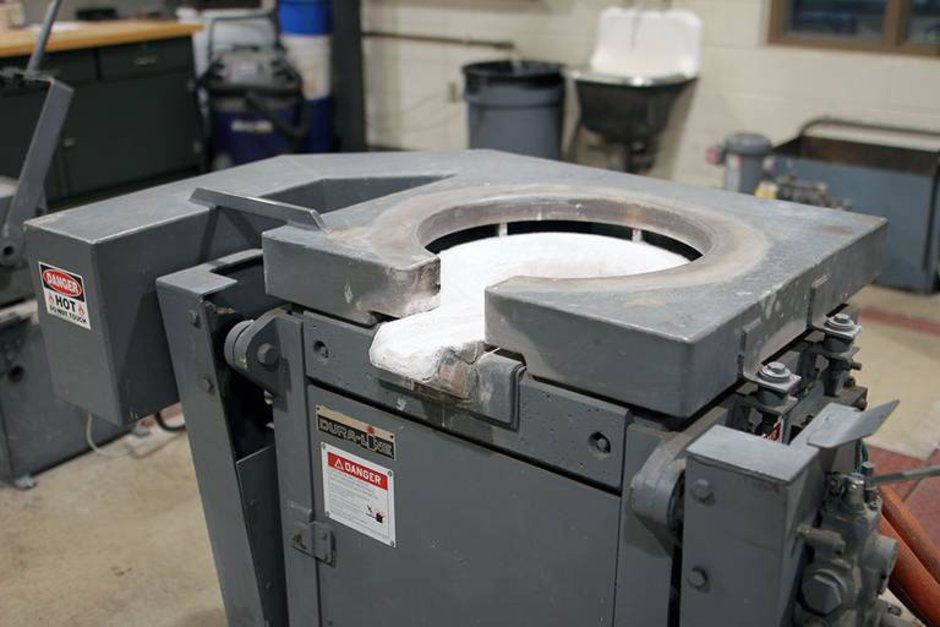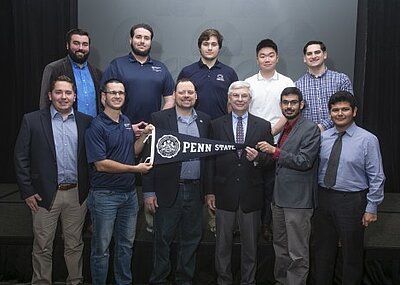The grants, awarded under Gov. Tom Wolf’s Pennsylvania Manufacturing Initiative, will allow teams of Penn State engineering faculty and students to work with small- to medium-sized foundries across the state to transition away from using silica sands in the metal casting process and reduce costs through 3D printing.
Pennsylvania is ranked No. 2 on the American Foundry Society metal casting list, with 150 foundries in the state. Locally there are foundries in Clearfield and Blair counties.
New regulations from the Occupational Safety and Health Administration mandate control of silica exposure, which can cause lung scarring and other long-term breathing issues. The change has prompted foundries to transition from silica sands to ceramic sands, often artificial and safer for workers to breathe.
Penn State’s team is made up of Robert Voigt, professor of industrial engineering and graduate program coordinator, Guha Manogharan, assistant professor of mechanical engineering and Paul Lynch, assistant professor of industrial engineering at Penn State Behrend. Voigt’s team, using a $68,350 grant, “is going into these foundries and really helping them figure out the best way to go about complying with these regulations,” said Miranda Buckheit, communications strategist for Penn State’s engineering department. To do so, they will help foundries transition to non-silica aggregates in metal casting, while faculty members provide webinars for foundry leadership on implementation and conduct training workshops with the Pennsylvania Foundry Association.
“It’s a close connection and full-service operation in which we develop, implement, utilize and train,” Voigt said in a department press release. “Many people can develop new technologies, but it’s much harder to deploy them.”
The second, $70,000 grant funds a project led by Manogharan and Lynch, working with Tech Cast LLC of Myerstown, which will help foundries improve 3D printing to reduce costs associated with metal casting.
Foundries currently use a lengthy, expensive process to make wax molds, in which wax patterns are prepared, dipped in semiliquid ceramic, heated and retrieved from the new ceramic shell. Then, metal is poured into the ceramic shell for the final casting. To shorten the process and lower costs, Lynch and Manogharan will directly 3D print the wax molds.
“Now we can print wax, which makes it cheaper, faster and easier for foundries to do their casting,” Manogharan said in a press release. “We will be working to develop design methods for next-generation investment casting processes. This project is ideal for Penn State, not only because of being a leader for knowledge transfer within Pennsylvania and beyond, but it brings together our strengths in 3D printing and metal casting.”
“It’s kind of a nice combination of skills to really help these foundries to avoid possible having to shut their doors,” said Buckheit.
Part of the grant also ensures undergraduate and graduate students will get to participate in the projects, which “helps them get real world experience,” she said.
Source: Sarah Paez, www.centredaily.com



